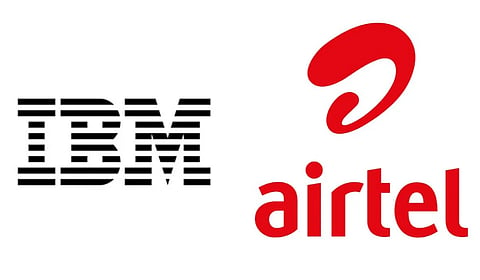Bharti Airtel has partnered with IBM to launch a cloud solution designed to meet the country’s growing demand for secure, compliant data infrastructure. The partnership marks a major step in India’s efforts to localise sensitive data, enhance digital trust, and enable industries to harness AI and hybrid cloud technologies while maintaining regulatory control.
The new platform, to be hosted on Airtel’s data centres across India, will use IBM Cloud for Telecommunications and IBM Cloud Satellite technologies to ensure that customer data remains within the country. It will enable government departments, public sector undertakings (PSUs), and regulated industries such as banking, healthcare, and manufacturing to store, process, and manage data in compliance with Indian laws — particularly the Digital Personal Data Protection Act (DPDP) and sectoral data localisation norms.
“Enterprises and governments today need cloud infrastructure that not only delivers scale and innovation, but also meets the highest standards of data privacy and security,” said Sandip Patel, Managing Director, IBM India & South Asia. “Our partnership with Airtel brings together IBM’s global expertise in hybrid cloud and Airtel’s deep network and data centre capabilities to offer a truly trusted digital foundation for India.”
Sharat Sinha, CEO of Airtel Business, added that the solution is built to serve as a “secure cloud for India’s mission-critical workloads.” “With data now being the most strategic asset, the cloud platform will help Indian enterprises and the government accelerate digital transformation with full control and transparency,” he said.
A growing enterprise shift
IBM and Airtel’s tie-up also reflects a wider trend among Indian enterprises toward hybrid cloud deployments. Many companies are rethinking pure public cloud strategies due to concerns over rising costs, vendor lock-in, and data portability.
This initiative is expected to integrate with IBM’s AI and quantum computing capabilities, allowing enterprises to securely deploy next-generation applications, including those requiring high-performance computing or confidential data analytics.
“With this, we are not just building cloud infrastructure — we’re laying the digital foundation for India’s next decade of innovation,” said Patel.


